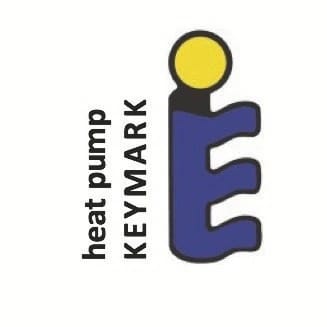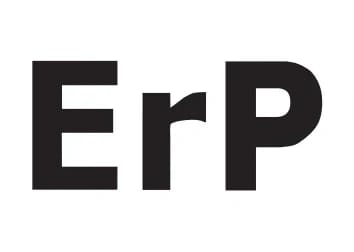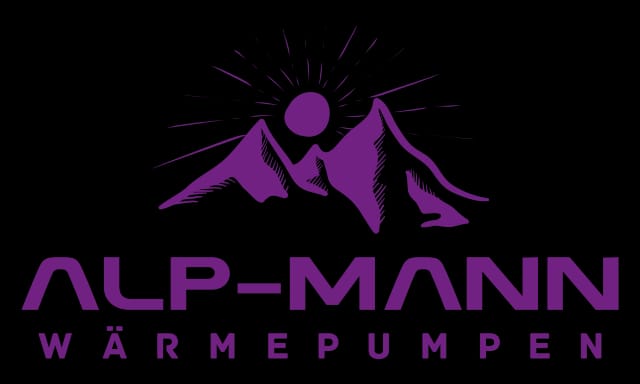Interesting facts
What is a heat pump?
The heat pump is a highly efficient and environmentally friendly heating system that provides comfortable warmth, hot water, and – optionally – pleasant cooling all year round. It uses free ambient heat as an energy source and, with the help of a small amount of drive energy, transfers thermal energy from a lower to a higher temperature level.
The decisive advantage over conventional heating systems lies in its exceptional efficiency: A heat pump can convert many times the energy used into usable heat. This makes it a sustainable, economical, and future-proof alternative to fossil fuels and makes an active contribution to the energy transition.

How does a heat pump work?
Heat pumps extract energy from natural sources such as the ambient air, the ground, or groundwater and efficiently convert it into heat and hot water for buildings. They consist of three key components: the heat source, the actual heat pump unit, and the heat distribution system in the building, which stores and transfers the generated energy.
The physical principle of a heat pump is similar to that of a refrigerator – but in reverse: While a refrigerator extracts heat from the interior and releases it unused to the outside, a heat pump uses precisely this extracted energy to heat the house. In other words, the heat pump "cools" the environment and brings the energy gained into the building. Reversible systems also enable rooms to be cooled in summer.
How a heat pump works in detail:
The physical principle of a heat pump is similar to that of a refrigerator – but in reverse: While a refrigerator extracts heat from the interior and releases it unused to the outside, a heat pump uses precisely this extracted energy to heat the house. In other words, the heat pump "cools" the environment and brings the energy gained into the building. Reversible systems also enable rooms to be cooled in summer.
How a heat pump works in detail:
- 1. Evaporation
The ambient heat is transferred via a heat exchanger to a refrigerant, which evaporates even at low temperatures. - 2. Compression
The gaseous refrigerant is compressed by a compressor, causing its temperature to rise significantly. - 3. Condensation
In the condenser, the hot gas releases its heat to the heating or domestic water, becoming liquid again. - 4. Release
An expansion valve lowers the refrigerant's pressure so that it can absorb environmental heat again – the cycle begins again.


What are the advantages and disadvantages of a heat pump?
Advantages of a heat pump
- Environmentally friendly and sustainable - Use of renewable energy sources such as air, earth, or groundwater – completely without direct emissions.
- Less dependent on fossil fuels - Reduce your dependence on oil and gas and rely on future-proof technology.
- Free environmental heat as an energy source - The heat used from the environment is available in unlimited quantities and free of charge.
- Significant reduction in CO₂ emissions - An active contribution to climate protection – especially when operated with green electricity.
- High energy efficiency = low operating costs - Modern heat pumps deliver many times the energy used as usable heat.
- Attractive subsidies and government grants - Benefit from extensive funding programs for new construction and renovation.
- Versatile - Ideal for single-family and multi-family homes, both in new construction and for the modernization of existing buildings.
- Heating and cooling with a single system - Reversible heat pumps provide warmth in winter and pleasant cooling in summer.
- Can be combined with existing heating systems - Can also be used efficiently as a hybrid solution – for example, in conjunction with gas boilers.
- Durable and low-maintenance - Robust technology with a long service life and low maintenance requirements when professionally installed.
Disadvantages of a heat pump
- Higher initial investment costs - Compared to conventional heating systems, installing a heat pump requires a larger initial investment – however, this pays for itself in the long term through lower operating costs and subsidies.
- Increased planning and renovation costs for older buildings - In existing buildings, retrofitting may require additional measures such as replacing radiators or improving building insulation.
What certifications do Alp-Mann heat pumps have?
Alp-mann heat pumps are multi-certified and TÜV-tested.
Our systems meet the highest quality and safety standards – confirmed by recognized testing bodies. A complete overview of all certificates can be found here:








Interested or questions? Contact us!
Learn more about our products
Why is it worth switching from gas heating to a heat pump?
Switching from a gas heating system to a heat pump is worthwhile both ecologically and economically.
Heat pumps utilize free environmental energy and, when properly designed, operate particularly efficiently. This can reduce your heating costs by up to 30–50% per year compared to gas heating. While the initial investment in purchasing, installing, and dismantling the old system is higher, ongoing operating costs are significantly lower – especially with good building insulation and a suitable electricity tariff.
From an ecological perspective, the conversion also makes an active contribution to climate protection: Heat pumps emit no CO₂ when operated with green electricity. This means they already meet requirements that are increasingly becoming mandatory for new buildings and energy-efficient renovations. They also reduce your dependence on fossil fuels and fluctuating gas prices – a clear advantage given rising CO₂ taxes and uncertain energy markets.
From an ecological perspective, the conversion also makes an active contribution to climate protection: Heat pumps emit no CO₂ when operated with green electricity. This means they already meet requirements that are increasingly becoming mandatory for new buildings and energy-efficient renovations. They also reduce your dependence on fossil fuels and fluctuating gas prices – a clear advantage given rising CO₂ taxes and uncertain energy markets.
Those who convert today will heat their homes in a climate-friendly and price-stable manner tomorrow – and in the long term.

How much does a heat pump cost?
Installation by a qualified specialist company typically takes two to three working days. The actual total costs depend on several factors, including the building structure, the effort required to integrate it into the heating system, and any renovation work.
Guidelines for total costs including installation:
Guidelines for total costs including installation:
- Single-family home: approx. €20,000–€40,000
- Multi-family home (e.g., 7 residential units): approx. €60,000–€100,000
- Commercial/Industrial: Depending on performance requirements – we are happy to create a customized quote.
The running costs of a heat pump arise primarily from electricity consumption. Thanks to the high efficiency of modern devices, there is significant savings potential compared to fossil heating systems.
Typical electricity consumption: Approximately 27–42 kWh per m² of living space annually
Example calculation:
A single-family home with a heat requirement of 15,000 kWh/year and a heat pump with a COP of 3.5 consumes approximately 4,285 kWh of electricity per year (15,000 kWh ÷ 3.5).
By using inexpensive heat pump electricity or through self-consumption from a PV system, operating costs can be significantly reduced.
Typical electricity consumption: Approximately 27–42 kWh per m² of living space annually
Example calculation:
A single-family home with a heat requirement of 15,000 kWh/year and a heat pump with a COP of 3.5 consumes approximately 4,285 kWh of electricity per year (15,000 kWh ÷ 3.5).
By using inexpensive heat pump electricity or through self-consumption from a PV system, operating costs can be significantly reduced.
The costs of heat pumps depend heavily on the system selected, the efficiency class, and the required output. Below you will find guidelines for the product prices without installation:
- Air-to-water heat pump (monoblock): approx. €18,000–19,000
- Air-to-water heat pump (split system): approx. €14,000–15,000
Heat pumps require very little maintenance. Nevertheless, an annual inspection by a specialist is recommended – especially to ensure the manufacturer's warranty and efficient operation.
- Maintenance costs: approximately €100–300 per year.
- No legal maintenance requirement, but recommended for long-term operational reliability and efficiency.
What funding is available for a heat pump?
The Federal Funding for Efficient Buildings (BEG) supports the transition to sustainable heating systems with comprehensive funding programs – especially for the use of heat pumps.
The financial incentive for owner-occupiers is particularly attractive. At the same time, heat pumps meet the statutory 65 percent renewable energy requirement for heating system replacement – thus ensuring not only funding but also future security.
KfW Funding
Private owner-occupiers receive direct subsidies for replacing old heating systems as well as indirect funding within the framework of an Efficiency House standard or for new construction with a heat pump.
BAFA Funding
In addition, BAFA supports other efficiency measures such as insulation or energy-efficient renovations in existing buildings.
What does smart home and smart grid compatibility mean?
Smart Home Compatibility
The Alp-mann heat pump can be seamlessly integrated into modern smart home systems. This allows the heating and cooling technology to be conveniently controlled via app, voice control, or automated scenarios – for example, adapted to your presence or absence, outside temperature, or room occupancy. This not only increases living comfort but also optimizes energy consumption. The heat pump is also compatible with the AICONO Energy Manager, which, as a central control unit, enables particularly intelligent and efficient energy distribution in the home.Smart Grid Compatibility
Thanks to the SG-Ready function, the Alp-mann heat pump is prepared for the requirements of smart grids. It can automatically adapt its operation to grid signals or the electricity production of your photovoltaic system – for example, increasing heating when cheaper or self-generated electricity is available. This relieves the strain on the power grid, lowers your energy costs, and future-proofs your home.
Under what conditions does a heat pump work particularly efficiently?
Low Flow Temperatures
The flow temperature of the heating system is a crucial factor for the efficiency of a heat pump. Ideally, it remains constant at around 35°C. To achieve this value, good building insulation and large-scale heat dissipation systems – such as underfloor or wall heating – are required. If the flow temperature consistently rises above 45°C, efficiency decreases significantly and operating costs increase accordingly.High Seasonal Performance Factor (SPF)
In contrast to the pure COP (Coefficient of Performance), the SPF describes the actual efficiency of a heat pump in year-round practical operation. It indicates how much heat is generated from one kilowatt-hour of electricity. For example, an SPF of 4.0 means that 1 kW of electrical energy produces 4 kW of usable heat – an efficiency of 400%. A typical SPF value for an air-to-water heat pump is approximately 3.5.High COP or SCOP value
The Coefficient of Performance (COP) indicates the efficiency of a heat pump under standardized laboratory conditions. An economically viable COP is between 3.1 and 5.1. The SCOP (Seasonal Coefficient of Performance) is even more meaningful, as it takes seasonal fluctuations and actual heating requirements throughout the year into account.Professional Design
Precise planning and dimensioning of the heat pump system is essential for efficient operation. The so-called bivalence point plays a particularly important role: It defines the outside temperature at which the heat pump can just barely cover the heating demand on its own. Below this point, an additional heat source may be necessary – for conventional systems, for example, a solar collector. For example, an electric heating element or a hybrid heating system. However, high-quality heat pumps like those from Alpmann are also designed for very low temperatures down to -25°C – and are therefore generally fully operational even in winter conditions.Start your heat pump project now
We will support you from planning and installation to commissioning – and beyond. We are your competent partner for all aspects of sustainable energy supply.
Get a free consultation now


